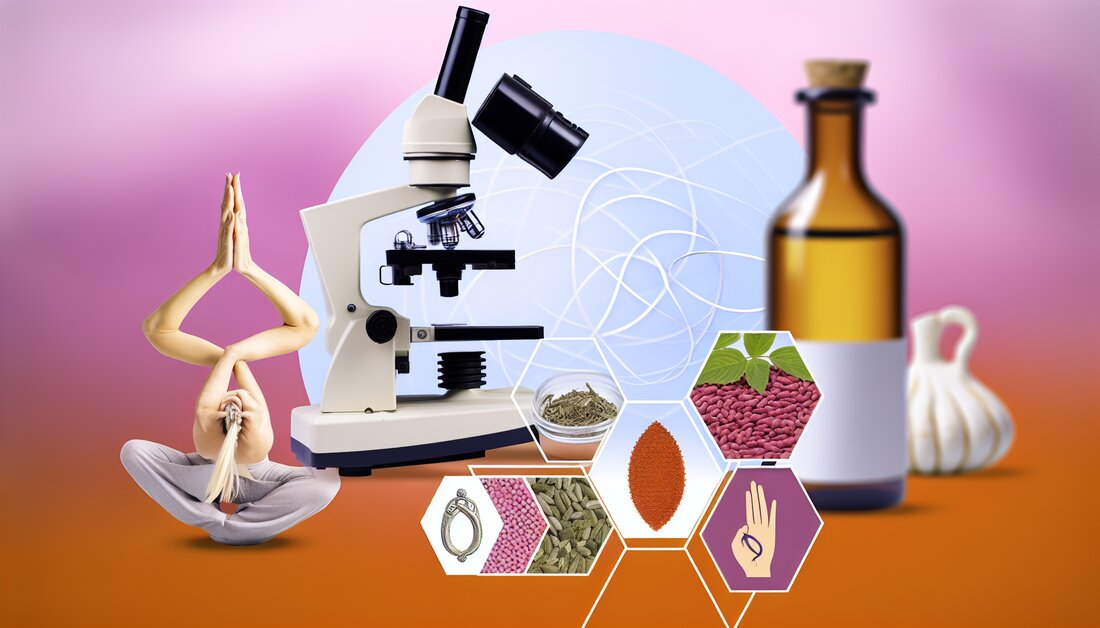Holistic Healing: Biology meets AYUSH for integrative medicine
Discover how integrative biology combines AYUSH systems with modern medicine to expand understanding of health and self-healing. Fractal physiology and epigenetics in focus! 🧬🌿

Holistic Healing: Biology meets AYUSH for integrative medicine
The Indian health system AYUSH includes traditional healing methods such as Ayurveda, yoga, naturopathy, Unani, Siddha, Sowa-Rigpa and homeopathy. These methods rely on the body and mind's natural self-healing powers instead of using modern medications, which often have side effects. In order to scientifically recognize these traditional methods, it is necessary to explain them in light of modern biological knowledge.
New research presents an approach to achieve this integration. She proposes a “sandwich model” of biology that includes aspects such as epigenetic regulation and complexity biology, which deals with self-organized criticality. It also uses concepts from Ayurveda, such as the six stages of illness, known as Shadkriyakala.
The result of this research is that the sandwich model adds a layer of epigenetics to molecular biology. This redefines health as optimized regulation. Fractal Physiology then explains how the body activates its self-healing powers, a principle used in all AYUSH systems. Ayurveda contributes to integration through its systemic understanding of body functions and the analysis of disease processes using Shadkriyakala.
These new additions create an integrated biology that incorporates concepts from the AYUSH systems. This provides a scientific basis for India's plan to make medical education more inclusive and treat traditional systems as equal to modern medicine.
Possible future impacts
This integrative perspective could fundamentally transform medical practice in India. By incorporating traditional healing methods into modern medical training, physicians may be able to offer patients more comprehensive treatment options. This could ultimately lead to a reduction in the use of medications with potential side effects by giving greater consideration to natural healing methods.
Basics and terms
- Epigenetik: Ein Bereich der Biologie, der sich damit beschäftigt, wie Umwelteinflüsse die Genaktivität auf zellularer Ebene regulieren, ohne die DNA-Sequenz zu verändern.
- Komplexitätsbiologie: Ein Wissenschaftsfeld, das sich mit Systemen beschäftigt, die aus vielen miteinander wechselwirkenden Teilen bestehen und sich selbst organisieren können.
- Fraktale Physiologie: Ein Konzept, das sich mit den wiederkehrenden Mustern in der Physiologie befasst und erklärt, wie biologische Systeme auf allen Ebenen funktionieren.
- Shadkriyakala: Sechs Stufen der Krankheitsentwicklung im Ayurveda, die helfen, Krankheiten frühzeitig zu erkennen und zu behandeln.
Abbreviations
- AYUSH: Ayurveda, Yoga und Naturopathie, Unani, Siddha, Sowa-Rigpa und Homöopathie
2023
Integration of AYUSH into modern biology through the sandwich model approach
The present research offers a novel approach to integrating the Indian AYUSH systems - Ayurveda, Yoga and Naturopathy, Unani, Siddha, Sowa-Rigpa and Homeopathy - into modern biology. By developing a 'sandwich model' of biology, a multi-dimensional method for the treatment of non-communicable diseases is presented, which aims to reduce the use of modern drugs and their side effects.
Methods
The innovative 'sandwich model' approach is introduced, which integrates holistic epigenetic regulation. This includes the concepts of complexity biology such as self-organized criticality and systemic considerations of organism function from Ayurveda. Ayurveda’s concept of six stages of etiology, known as Shadkriyakala, is also discussed.
Results
- Die molekulare Biologie wird durch die Einbeziehung einer epigenetischen Schicht im Sandwichmodell erweitert. Dies führt zu einer neuen wissenschaftlichen Definition von Gesundheit als optimierte Regulation.
- Die fraktale Physiologie wird verwendet, um das Konzept der Selbstheilung zu erklären, das in allen AYUSH-Systemen eine Rolle spielt.
- Ayurveda’s systemische Herangehensweise liefert ein ganzheitliches Verständnis der Organismusfunktion und verbessert durch Shadkriyakala das Verständnis der Pathophysiologie.
discussion
Complementing these concepts into an integrative biological framework enables an expansion of modern biology to now incorporate the concepts of AYUSH systems. This research provides a scientific basis for India's plan for integrative medical education, which considers AYUSH systems on an equal footing with modern medicine.
For more information about the research, see the following link.

 Suche
Suche
 Mein Konto
Mein Konto
